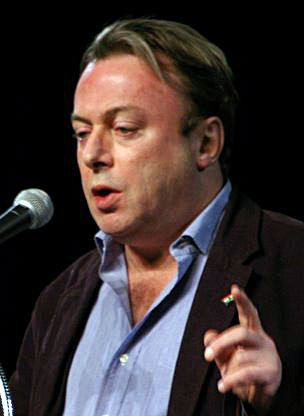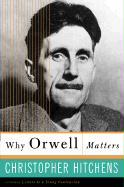Related Research Articles
Wilhelm Reich was an Austrian doctor of medicine and a psychoanalyst, a member of the second generation of analysts after Sigmund Freud. The author of several influential books, The Impulsive Character (1925), The Function of the Orgasm (1927), Character Analysis (1933), and The Mass Psychology of Fascism (1933), he became one of the most radical figures in the history of psychiatry.

Orgone is a pseudoscientific concept variously described as an esoteric energy or hypothetical universal life force. Originally proposed in the 1930s by Wilhelm Reich, and developed by Reich's student Charles Kelley after Reich's death in 1957, orgone was conceived as the anti-entropic principle of the universe, a creative substratum in all of nature comparable to Mesmer's animal magnetism (1779), to the Odic force (1845) of Carl Reichenbach and to Henri Bergson's élan vital (1907). Orgone was seen as a massless, omnipresent substance, similar to luminiferous aether, but more closely associated with living energy than with inert matter. It could allegedly coalesce to create organization on all scales, from the smallest microscopic units—called "bions" in orgone theory—to macroscopic structures like organisms, clouds, or even galaxies.

Christopher Eric Hitchens was a British-American author and journalist who is widely regarded as one of the most influential atheists of the 20th and 21st centuries. Author of 18 books on faith, culture, politics, and literature, he was born and educated in England, graduating in the 1970s from Oxford. In the early 1980s, he immigrated to the United States and wrote for The Nation and Vanity Fair. Known as one of the four horsemen of New Atheism, he gained prominence as a columnist and speaker. His epistemological razor is still of mark in philosophy and law.
Francis James Baird Wheen is a British journalist, writer and broadcaster.

The London Review of Books (LRB) is a British literary magazine published twice monthly that features articles and essays on fiction and non-fiction subjects, which are usually structured as book reviews.

Peter Jonathan Hitchens is an English conservative author, broadcaster, journalist, and commentator. He writes for The Mail on Sunday and was a foreign correspondent reporting from both Moscow and Washington, D.C. Peter Hitchens has contributed to The Spectator, The American Conservative, The Guardian, First Things, Prospect, and the New Statesman. He has published numerous books, including The Abolition of Britain, The Rage Against God, The War We Never Fought and The Phoney Victory.

Sleeper is a 1973 American science fiction comedy film parodying a dystopic future of the United States in 2173, directed by Woody Allen and written by Allen and Marshall Brickman. The plot involves the misadventures of the owner of a health food store who is cryogenically frozen in 1973 and defrosted 200 years later in an ineptly led police state. Contemporary politics and pop culture are satirized throughout the film, which includes tributes to the classic comedy of Buster Keaton, Harold Lloyd, and Charlie Chaplin. Many elements of notable works of science fiction are also paid tribute to, or parodied.

Andrew O'Hagan is a Scottish novelist and non-fiction author. Three of his novels have been nominated for the Booker Prize and he has won several awards, including the Los Angeles Times Book Award.
Philip Ball is a British science writer. For over twenty years he has been an editor of the journal Nature for which he continues to write regularly. He now writes a regular column in Chemistry World. He has contributed to publications ranging from New Scientist to the New York Times, The Guardian, the Financial Times and New Statesman. He is the regular contributor to Prospect magazine, and also a columnist for Chemistry World, Nature Materials and BBC Future. He has broadcast on many occasions on radio and TV, and in June 2004 he presented a three-part serial on nanotechnology, Small Worlds, on BBC Radio 4.

From 1993 to 2012, The London Consortium was a graduate school in the UK offering multidisciplinary Masters and Doctoral programs in the humanities and cultural studies at the University of London. It was administered by Birkbeck, University of London, one of the constituent colleges of the University of London, and fell under the Humanities list of courses at Birkbeck.

The Information Research Department (IRD) was a secret Cold War propaganda department of the British Foreign Office, created to publish anti-communist propaganda, including black propaganda, provide support and information to anti-communist politicians, academics, and writers, and to use weaponised information, but also disinformation and "fake news" to attack not only its original targets but also certain socialists and anti-colonial movements. Soon after its creation, the IRD broke away from focusing solely on Soviet matters and began to publish pro-colonial propaganda intended to suppress pro-independence revolutions in Asia, Africa, Ireland, and the Middle East. The IRD was heavily involved in the publishing of books, newspapers, leaflets, journals, and even created publishing houses to act as propaganda fronts, such as Ampersand Limited. Operating for 29 years, the IRD is known as the longest-running covert government propaganda department in British history, the largest branch of the Foreign Office, and the first major anglophone propaganda offensive against the USSR since the end of World War II. By the 1970s, the IRD was performing military intelligence tasks for the British Military in Northern Ireland during The Troubles.
The Orwell Prize, based at University College London, is a British prize for political writing. The Prize is awarded by The Orwell Foundation, an independent charity governed by a board of trustees. Four prizes are awarded each year: one each for a fiction and non-fiction book on politics, one for journalism and one for "Exposing Britain's Social Evils" ; between 2009 and 2012, a fifth prize was awarded for blogging. In each case, the winner is the short-listed entry which comes closest to George Orwell's own ambition to "make political writing into an art".

Love, Poverty, and War: Journeys and Essays is a collection of essays and reportage by the author, journalist, and literary critic Christopher Hitchens. The title of the book is explained in the introduction, which informs the reader that "an antique saying has it that a man's life is incomplete unless or until he has tasted love, poverty, and war."

Why Orwell Matters, released in the UK as Orwell's Victory, is a book-length biographical essay by Christopher Hitchens. In it, the author relates George Orwell's thoughts on and actions in relation to: The British Empire, the Left, the Right, the United States of America, English conventions, feminism, and his controversial list for the British Foreign Office.

Johann Eduard Hari is a British-Swiss writer and journalist who wrote for The Independent and The Huffington Post. In 2011, Hari was suspended from The Independent and later resigned, after admitting to plagiarism and fabrications dating back to 2001 and making malicious edits to the Wikipedia pages of journalists who had criticised his conduct. He has since written books on the topics of depression, the war on drugs, and the effect of technology on attention spans, which have attracted criticism for poorly evidenced claims, misrepresented sources, and bad citational practices.
Michael Shelden is an American biographer and teacher, notable for his authorized biography of George Orwell, his history of Cyril Connolly’s Horizon magazine, his controversial biography of Graham Greene, and his study of the last years of Mark Twain, Man in White. In March 2013 his Young Titan: The Making of Winston Churchill was published. In 2016 his biography of Herman Melville, Melville in Love, was published by Ecco/HarperCollins.

Christopher Hitchens was a prolific English-American author, political journalist and literary critic. His books, essays, and journalistic career spanned more than four decades. Recognized as a public intellectual, he was a staple of talk shows and lecture circuits. Hitchens was a columnist and literary critic at The Atlantic, Vanity Fair, Slate, World Affairs, The Nation, Free Inquiry, and a variety of other media outlets.

Arguably: Essays is a 2011 book by Christopher Hitchens, comprising 107 essays on a variety of political and cultural topics. These essays were previously published in The Atlantic, City Journal, Foreign Affairs, The Guardian, Newsweek, New Statesman, The New York Times Book Review, Slate, Times Literary Supplement, The Wall Street Journal, The Weekly Standard, The Wilson Quarterly, and Vanity Fair. Arguably also includes introductions that Hitchens wrote for new editions of several classic texts, such as Animal Farm and Our Man in Havana. Critics' reviews of the collection were largely positive.
Sarah Bartlett Churchwell is a professor of American Literature and Public Understanding of the Humanities at the School of Advanced Study, University of London, UK. Her expertise is in 20th- and 21st-century American literature and cultural history, especially the 1920s and 1930s. She has appeared on British television and radio and has been a judge for the Booker Prize, the Baillie Gifford Prize, the Women's Prize for Fiction, and the David Cohen Prize for Literature. She is the director of the Being Human festival and the author of three books: The Many Lives of Marilyn Monroe; Careless People: Murder, Mayhem and the Invention of The Great Gatsby; and Behold America: A History of America First and the American Dream. In April 2021, she was long listed for the Orwell Prize for Journalism.
Nesrine Malik is a Sudanese-born journalist and author of We Need New Stories: Challenging the Toxic Myths Behind Our Age of Discontent. Based in London, Malik is a columnist for The Guardian and serves as a panellist on the BBC's weekly news discussion programme Dateline London.
References
- ↑ "Christopher Turner", Cabinet magazine.
- ↑ "Christopher Turner", also see here, London Review of Books.
- ↑ "Christopher Turner", The Guardian.
- ↑ "Icon magazine". Archived from the original on October 20, 2014. Retrieved January 6, 2016.
{{cite web}}: CS1 maint: bot: original URL status unknown (link) - ↑ "Orwell Prize 2012 Longlists Announced", Orwell Prize, 29 March 2012.
- ↑ Bishop, Jordan. "Christopher Hitchens longlisted for the Orwell prize", The Guardian, 29 March 2012.
- ↑ "Turner, Christopher" Archived 2006-09-23 at the Wayback Machine , AP Watt.
- ↑ "PhD Titles" Archived 2016-03-04 at the Wayback Machine , Masters & Doctoral Programme in Humanities and Cultural Studies, London Consortium.